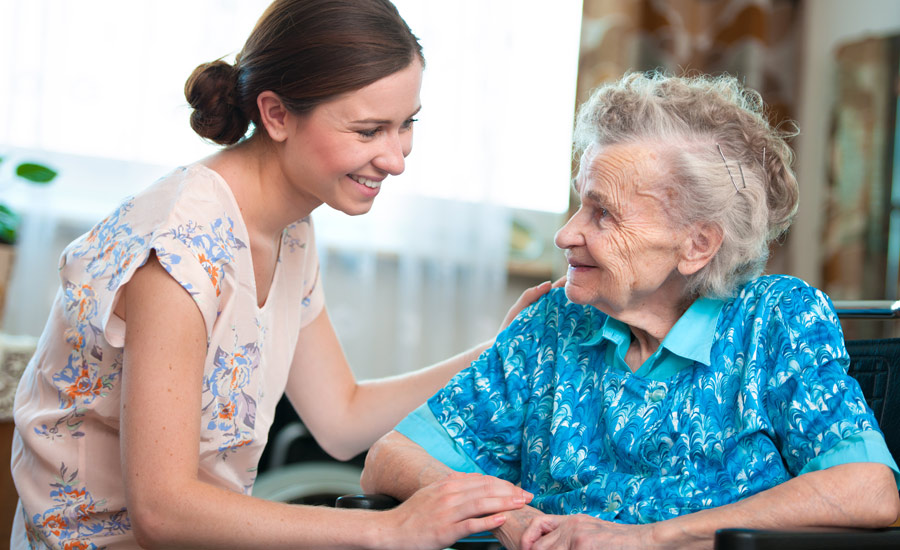How Volunteers Are Transforming Life in Care Homes

Volunteers in care homes, bring company, conversation and support to residents who might otherwise feel isolated. With staff focused on essential care, there isn’t always time for the little things that make life more enjoyable – like a friendly chat, a game of cards or a helping hand with everyday tasks.
Keep reading as we look at the different ways volunteers improve care home living and why their role is more important than ever.
What Role do Volunteers Play in Care Homes?
Volunteers bring care homes to life. They offer company, conversation and a friendly face for residents who might not get many visitors. Whether chatting over a hot cuppa, running a group activity or assisting with a video call to family, they make everyday life more engaging. Some bring specialist skills like music, pet therapy or personal care, while others show up to spend time with those who need it most. Their support helps residents feel connected, valued and part of a real community.
How Volunteers Transform Daily Life in Care Homes
Life in a care home can feel repetitive at times, but volunteers help break up the routine and bring a real sense of connection:
Companionship That Makes a Difference
Research shows that between 22% and 42% of care home residents experience severe loneliness, which can have a serious impact on their health. Volunteers help tackle this by bringing warmth, friendship and much-needed company. A quick chat, a shared joke or sitting with a resident for a while can completely change their day. Many older adults don’t get regular visitors, so having a friendly face around makes them feel valued and included, boosting mental health and well-being.
Keeping Minds and Bodies Active
Volunteers also keep things interesting with activities that give residents something to look forward to. From arts and crafts to fun singalongs, bingo and gentle exercise, these moments keep residents engaged and connected with others. Even the little things, like reading or looking through magazines or photos, can start meaningful conversations and lift their mood.
Helping With the Little Things
Some assist residents with writing letters, setting up video calls or reading books and newspapers. Others lend a hand at mealtimes or take residents for a short stroll outside. These small gestures can make a big difference in helping residents feel independent and included.
Making Care Homes Feel Like Home
More than anything, volunteers create a positive, welcoming atmosphere. They bring fresh energy, new conversations and a real sense of community, making care homes feel less like institutions and more like places where people genuinely belong.
The Different Types of Volunteers in Care Homes
Volunteers come from all walks of life, each bringing something unique to care homes:
Companionship Volunteers
Care home volunteers spend time with people who need company. Sometimes, it’s the little things — like remembering a resident’s favourite topic or taking time to listen to their day — that mean the most.
Activity Volunteers
Care homes can feel quiet without things going on, so staff create a full activity schedule and sometimes bring in volunteers to keep the energy up. They organise singers, game hosts, movement coaches, etc, to keep residents entertained and engaged. A good activity volunteer knows how to get people involved and make the day more fun.
Practical Support Volunteers
Sometimes, residents need a bit of extra help with everyday things. Practical support volunteers might read letters, help with phone or video calls, or assist at mealtimes. They help them stay independent and connected without overtaking.
Intergenerational Volunteers
Younger volunteers, like students or school groups, bring a different kind of energy. They chat, play games and share skills, sometimes teaching residents how to use a smartphone, other times just bringing in fresh conversation. Intergenerational visits bring laughter, new perspectives and a great mix of stories between generations.
Specialist Volunteers
Some volunteers have particular skills that add something extra. Music therapists, pet therapy providers or even hairdressers offering free trims all make a big difference. Don’t underestimate how a therapy dog visit or a live music session can completely change the mood in a care home.
Fundraising and Community Outreach Volunteers
Some even help behind the scenes. They raise money for activities, secure donations and make sure the care home stays connected with the wider community. Their work helps fund better facilities, more social events and special treats for residents.
How It Benefits the Volunteer
Volunteering in a care home isn’t a one-way act of kindness. It’s a meaningful experience that gives just as much to the volunteer as it does to the residents. Spending time with people who have lived full lives, hearing their stories and forming unforgettable connections is something you can’t get from a textbook or a screen.
It’s an excellent way for younger volunteers to build confidence, improve communication skills and gain experience in a care setting. Those considering careers in healthcare or social work get valuable insight into working with older people. For others, it’s simply a way to be part of a community and do something that feels worthwhile.
There are personal benefits too. Volunteering in a care home has been linked to lower stress levels, better mental well-being and a greater sense of purpose. Being around people, having conversations and knowing your time makes a difference is a genuine feel-good factor.
People sign up to help but often walk away with more than they expected – new friendships, fresh perspectives and a genuine appreciation for human connection.
Volunteers Make All the Difference
As with dedicated staff, care homes wouldn’t be the same without volunteers. They bring vitality and a sense of connection that makes life better for everyone, turning a quiet day into something special.
If you’ve ever thought about getting involved, now’s the time. There are many residents in care homes who would love to see a new, friendly face walk through the door.
Ready to explore...
